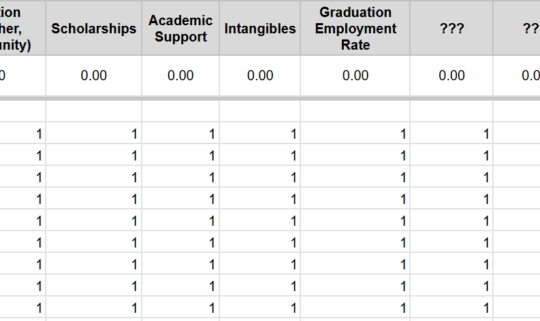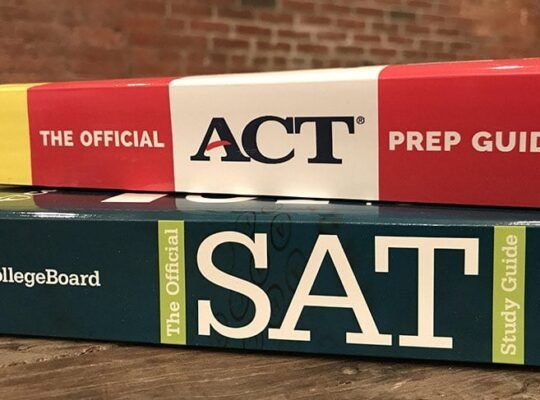Many seniors and parents are in the start of the application process or what I like to call Application Season. That time when you are applying to the universities that you want to attend. There are many requirements to review for each university – one in particular is a bit misleading – ACT and SAT scores are “test optional.” Over the past 3 years I have been looking for a true answer on what does “test optional” mean for college admissions.
- Ask students: most students feel they do not have to worry about the PSAT, ACT and SAT testing. The scores don’t matter!
- Ask the college admissions personal: Simple answer, this was started during COVID and has not been changed since. As a follow-up, “do they foresee the test optional going away?” Some colleges have already started to bring back test scores as a requirement. Others are not sure, yet!
The first couple of years of test optional, this was just sitting out on all college websites. Last year, things changed a bit. I noticed that test optional started to add – if your score was X – you could get admitted, even if your GPA was below the requirement. Then came, if your score was X – you could in fact received a better merit scholarship from colleges that offer merit scholarships.
What students should think about “test optional:”
- These standardized tests can help you in the long run! Taking the test serious could improve your chances of getting into college or improve the potential merit scholarship dollars the college will award you.
I’d like to share a brief story. A student I assisted during his junior year hadn’t considered college as a post-high school path. However, by his senior year, his perspective shifted, and he applied to colleges. Unfortunately, he was not accepted to any of the institutions he applied to and sought my help. Upon reviewing his GPA and junior year ACT score, the reasons for his rejections became clear. We explored options:
- Attending community college could be beneficial. It would allow him to improve his GPA and later transfer to a four-year university, with the added benefit of cost savings during the initial years.
- He could retake the ACT. His score was 17, taken in April of his junior year—a time when the school offers the test to all juniors. When I inquired if he had prepared or studied for the ACT, his response was negative; since college wasn’t in his plans, he hadn’t felt compelled to exert effort.
We discussed the possibility of retaking the ACT and the necessary steps for improvement.
- I advised him to enroll in test prep with Revolution Prep because they provide a digital test with scoring and a complimentary 30-minute review session.
- He should utilize the 30-minute evaluation to concentrate his study efforts on the areas recommended for improvement. Then, he should retake the ACT, this time fully prepared.
Result – New ACT composite score – 30! He is currently attending the university of choice.
In Summary Test Optional is misleading –
Seniors – what was your ACT score? Good enough, could be better? Maybe test prep and a retake is in order. Who knows, you may get additional merit-based scholarship funds! If so, is that time investment worth it now?
I’ve continue emphasized to the entire junior class the significance of utilizing the school’s complimentary ACT. It can aid students with an unweighted GPA near or below the admission threshold in gaining acceptance. Moreover, a high score may result in the allocation of extra merit-based scholarship funds. Don’t treat this as test optional!








[…] scores will ruin your chances. For many schools, they are just one aspect of the application, and in fall 2024, over 1,900 schools will not require applicants to submit test scores—though if […]
[…] are many factors to consider when deciding whether to retake the SAT or ACT. Currently, very few schools make SAT or ACT scores mandatory for admissions, but most colleges will use your score to help them give out academic […]